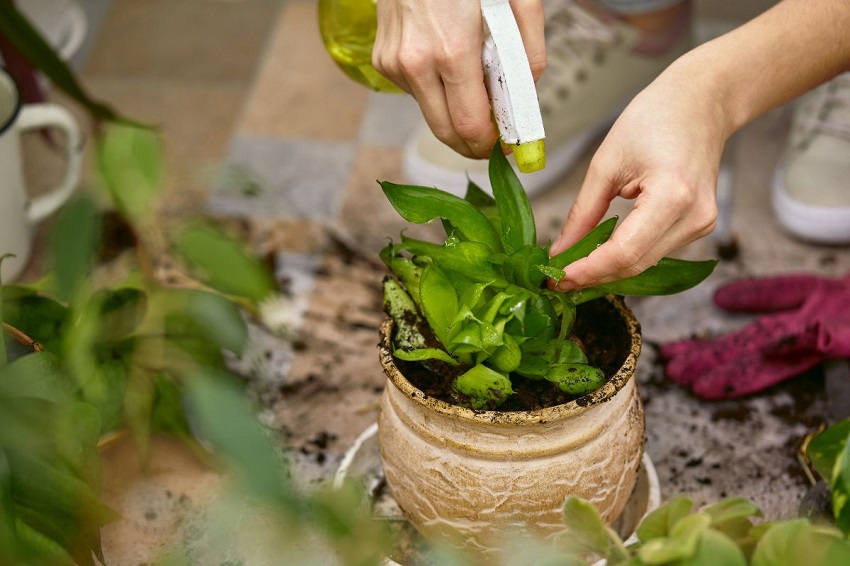Neem oil is a popular organic pesticide and fungicide derived from the seeds of the neem tree (Azadirachta indica). It has gained significant attention in the gardening and agricultural communities due to its natural properties and potential benefits for plant health. However, like any other product, neem oil has its disadvantages and limitations. In this article, we will explore the drawbacks of neem oil for plants and discuss its potential negative effects. So, let’s dive in and uncover the downsides of using neem oil in your gardening endeavors.
Understanding Neem Oil and Its Uses
If you’re an avid gardener, you may have heard of neem oil as a natural solution to pest and fungal problems in your plants. Extracted from the seeds of the neem tree, which is native to the Indian subcontinent, neem oil contains a variety of biologically active compounds, such as azadirachtin, nimbin, and salannin, that exhibit insecticidal, fungicidal, and antibacterial properties. With its ability to combat a range of issues, neem oil has become a popular choice for organic farming and gardening as an alternative to synthetic pesticides and fungicides. It’s even been known to help with problems with hydrangeas in pots!
Potential Disadvantages of Neem Oil
1. Harmful to Beneficial Insects
While neem oil is generally considered safe for humans and animals, it can have adverse effects on beneficial insects, such as bees, ladybugs, and butterflies. Neem oil is a broad-spectrum insecticide, meaning it can kill both harmful pests and beneficial insects. Therefore, it is crucial to apply neem oil carefully and avoid spraying it on flowering plants where pollinators are active.
2. Residual Effects on Bees and Other Pollinators
Neem oil may leave residual traces on plants even after it has dried. These residues can be harmful to bees and other pollinators that come into contact with them. To minimize the risk to pollinators, it is essential to use neem oil products sparingly and avoid applying them during peak flowering times when pollinators are most active.
3. Phytotoxicity
Certain plant species, particularly those belonging to the sensitive category, can exhibit phytotoxic reactions when exposed to neem oil. Phytotoxicity refers to the harmful effects neem oil can have on plants, including leaf discoloration, stunted growth, and even plant death. It is crucial to conduct a patch test on a small portion of the plant before applying neem oil to the entire plant to ensure compatibility and avoid potential damage.
4. Slow Action and Limited Effectiveness
Neem oil acts as a contact insecticide and needs to come into direct contact with the pests to be effective. It works by disrupting the insect’s hormonal balance, inhibiting feeding, and preventing reproduction. However, its action is relatively slow compared to synthetic pesticides, and it may require multiple applications to achieve satisfactory results. Additionally, neem oil may not be effective against all types of pests, and certain insects may develop resistance to its active compounds over time.
5. Unpleasant Odor
Neem oil has a distinct and pungent odor that some people find unpleasant. This odor can linger in the garden or on plants after application. While the smell dissipates over time, it may still be a drawback for individuals who are sensitive to strong scents or prefer odorless gardening products.
6. Environmental Impact
Although neem oil is derived from a natural source, its production can have environmental implications. Large-scale cultivation of neem trees for oil extraction may result in deforestation or habitat destruction, impacting the ecosystem and biodiversity in certain regions. It is essential to source neem oil from sustainable and responsibly managed suppliers to minimize its environmental impact.
In conclusion, while neem oil offers numerous benefits as an organic pesticide and fungicide, it is essential to be aware of its disadvantages and limitations. Neem oil can harm beneficial insects, leave residual effects on pollinators, exhibit phytotoxicity on certain plant species, have slow action, and may produce an unpleasant odor. Additionally, its production can have environmental implications. Therefore, it is crucial to weigh the pros and cons and use neem oil judiciously, taking appropriate precautions to ensure its effective and responsible use in the garden.

